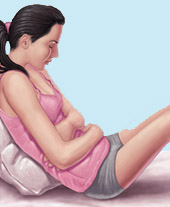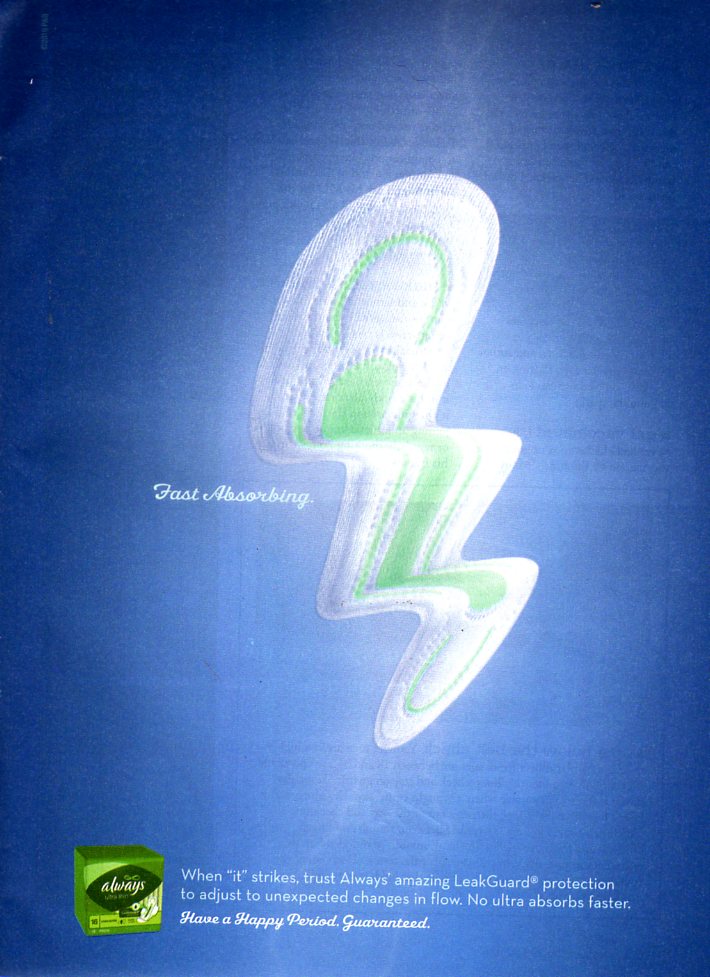
by Elizabeth Kissling | Sep 10, 2010 | Dysmenorrhea, Girls, Menstruation, New Research
A new study published in the Journal of Pediatric Adolescent Gynecology reports on a study of how dysmenorrhea affects girls’ relationships with families and friends and school performance for girls in Turkey. Previously, we reported on research documenting that...
by Chris Hitchcock | Sep 8, 2010 | Menstruation
An open-access article published in PLOS Medicine yesterday, Dr. Adriane Fugh-Berman, associate professor in the Department of Physiology at Georgetown University Medical Center in Washington DC, presents an article describing the ways in which the pharmaceutical...

by Elizabeth Kissling | Sep 5, 2010 | Advertising, Disposable menstrual products, FemCare, Internet, Media, Menstruation
Guest Post by Chella Quint, Adventures in Menstruating So Johnson & Johnson’s Canadian division’s just launched a new Stayfree campaign that I found out about when a Toronto reporter contacted me for an article she was writing. The campain is a series of viral...

by Elizabeth Kissling | Sep 2, 2010 | Amenorrhea, Health Care, Media, Menstruation
The headline of a story at ABC news about infertility among female athletes is “Female Athletes Are Too Fit To Get Pregnant“. Many women athletes in their 20s, at peak performance levels and peak physical fitness by most measures, may find themselves...

by Elizabeth Kissling | Aug 16, 2010 | Advertising, Disposable menstrual products, FemCare, Media, Menstruation
Procter & Gamble femcare ads are such an easy target. It’s shooting fish in a barrel. Periods = lightning? Really? And the classic deictic euphemism, “it”, well, that just makes me tired. At least there’s no blue liquid....
by Elizabeth Kissling | Aug 11, 2010 | Health Care, Menstruation, New Research, Ovulation
Fascinating new research from the National Institutes of Health finds that women’s cholesterol levels correspond with cyclic changes in estrogen levels. Total cholesterol levels can vary by as much as 19% over the course of the cycle. The researchers found that...






